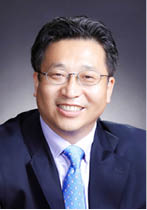In this interview, the outgoing Chinese Ambassador to Nigeria, Mr Cui Jianchun, spoke to some editors on his three-year stewardship in the country, status of the Yuan-Naira policy, productive work force, among other issues.
As the Chinese Ambassador to Nigeria, what are some of the key highlights of your achievements in the last three years?
As the 14th Chinese Ambassador to Nigeria, there are two or three major things I would like to highlight. One is the strategy for the two countries. In the first 100 days when I assumed the role, I proposed my 5G, GDP strategy for the two countries.
I want to let you know that this strategy is very important for the next 50 years of the Nigeria-China relationship. We established our relationship in 1971, so 2021 marked the 50th anniversary. During the last 50 years, we have achieved a lot. There are no fundamental issues, questions or problems between the two countries. We support each other, both domestically and internationally.
The Chinese way of thinking always tries to focus on the long term and short term. To achieve short term goals and plan for the long term, I proposed my 5G, GDP strategy. Here, GDP does not refer to gross domestic product, it stands for Gross Development Progress, while 5G represents the five strategic goals: protocol, consonants, economic cooperation, military security cooperation, international affairs coordination, as well as people-to-people communication. We have established very clear strategic goals for the two countries because without a goal, there is no direction.
We have also identified prioritised areas, which we refer to as the 5-Is: Infrastructure, ICT, Industry, Investment, Import and Export. Additionally, we have outlined the necessary conditions: security structure, speed, synergy and supervision.
- China’s imports from Nigeria hit $2.386 billion in 2023 – Envoy
- ECOWAS crisis serious threat to our national interest – Ambassador Jibrin Chinade
The 5-T component involves what I refer to as “thought exchange.” Today, it serves as a good example of how we are exchanging our thoughts, cultivating talents and capitalising on our resources. We possess abundant human and natural resources. How can we capitalize on these resources through technology application and judicial transcendency?
I am supported by the Nigerian government and the Chinese government. We believe that we have a clear strategy to push and enhance the relationship between the two countries.
Another aspect I would like to highlight is how we can utilise cultures because we believe that regardless of politics or economics, culture is very important. I have endeavoured to introduce the Chinese traditional culture because in China, we have a history of over 5,000 years.
While the People’s Republic of China is a young country, turning 75 years old this year, China itself has a history spanning more than 5,000 years, similar to Nigeria, which is also a rich country.
I have sought to introduce the Chinese culture, recognising that Nigeria also boasts a rich culture. It is not about one side having a rich culture, it’s about sharing harmony. We use the term, “Chinese harmony” to create a Nigeria-Chinese symphony.
When I spoke with the president before the election, we engaged in a one-and-a-half-hour conversation. Later, when we met with the media, the president still remembered “harmony symphony.”
Nigeria needs harmony and symphony; China also needs harmony. How can we perform a Nigeria-China symphony? I believe this initiative is very powerful. We believe that Chinese harmony signifies coexistence, integration, diversity and development we refer to as Chinese traditional fine culture.
How can we navigate relations between Nigeria and China? We aim to achieve harmony at four levels: between human beings and nature, advocating and pursuing kindness and harmony within families and the society, promoting happiness in every family, considering Nigeria as one big family, and fostering friendliness in the society.
The third level pertains to ethnic groups and cultures. We aim to achieve unity and concordance. Consider this: You have more than 250 ethnic groups, if we unite them it would be the greatest force. Similarly, in China, with 56 ethnic groups we can influence the entire world. This underscores the importance of unity among ethnic groups unity in culture and concordance.
Moving on, the last aspect concerns the country or state governance and how we can govern. For a state to function effectively, we require peace and governance, as well as consonance.
When we look at the current situation, some politicians and leaders, in my opinion, do not uphold moral principles. Observing the current state of affairs here, it is evident that every country should strive to live in peace, yet many are still embroiled in conflict. Whether it is the opposition or ruling party, we need consonance. We cannot simply focus on party politics, we need to achieve consonance to avoid disharmony. This leads me to the second initiative I have undertaken, which I believe has been well received by many people.
Lastly, I would like to emphasize a point you may not agree with due to your understanding of the Chinese reality here. We firmly believe that the party plays a crucial role because in today’s world, more than 170 countries engage in party politics rather than monarchy or imperial rule. Due to human development and progress today, party politics prevail. Therefore, I have endeavoured to bring together the party, enterprises and government to establish a mechanism for cooperation.
This kind of thing is done well in China. The party not only provides leadership, but also guides the direction and fosters innovation. The party is very important, not just in terms of the manifesto before the election, but also in how it can be implemented. Therefore, I believe the situation is not unique to Nigeria—parties are useful for elections, but after the election they often lose influence in the government and enterprises.
To address this, I have endeavoured to establish a mechanism that brings together the Chinese party, enterprises and government at both the federal and state levels to collaborate with the Nigerian side. We initiated this collaboration in the previous year, working with Kano and Fujian province in China, involving party, enterprise, and government representatives, as well as other states.
I consider this mechanism to be a valuable tool for fostering relationships between the federal and state levels, as well as government and enterprise levels. We believe that without enterprises, a country cannot progress. While politics and the party are crucial, true progress is achieved through enterprises. Therefore, when enterprises receive support from the party and policies from the government, the people stand to benefit greatly. This is why I am dedicated to developing this mechanism in Nigeria and China. For example, just recently in Akwa Ibom, I established a relationship with Jilin Province in China, which is known for car production. It is a modern city with a strong agricultural sector. These three aspects are areas I take pride in making progress. While we may have planted seeds and seen some results, there is still much work to be done.
Some trees may bear fruit in three years, but my time here has not been sufficient for all that needs to be accomplished. However, I believe the most important thing is that I have paved the way for my successor to continue building relations between the two nations.
China is advocating the New Quality Productive Force. There are allegations that individuals who could not meet standards in China are brought to Nigeria to take up menial jobs intended for Nigerian citizens. How accurate are these claims?
President Xi Jinping, two years ago, met with African leaders in South Africa. During this round table discussion, three significant points were highlighted in the relationship between China and Africa. The first pertained to industrialisation as technology is essential for industrial progress; and industrialisation, in turn, drives technological advancements.
China is committed to collaborating with Africa, particularly Nigeria, with the aim of positioning the country as the industrial hub of Africa in the next 20 years. Therefore, strategic planning for the next 15 to 20 years is crucial. With the establishment of the African Continental Free Trade Agreement, trade discussions extend beyond the continent to include international markets such as European countries, the United States and Asian countries.
For instance, the vice president of Nigeria has shown a keen interest in electric vehicles (EV). China possesses leading technology in electric vehicles, presenting an opportunity for collaboration and utilisation of this innovative technology.
Another area of focus is 5G technology. While China is advancing towards 6G technology, I observed during my visit to Huawei’s office in Lagos that many young Nigerians were actively involved in ICT technology, which bodes well for the future. Over the past three years, Huawei has provided training to over 30,000 Nigerians in 5G technology, so China is committed to the technological development of Nigeria.
Are you suggesting that we should focus on the positive aspects of having young, talented Chinese individuals in Nigeria, looking at it from a positive perspective?
What I am emphasizing is that Chinese companies operating in Nigeria have made significant investments in developing local talents. For instance, Huawei has trained 30,000 Nigerians and CCECC has provided training in transport technology in China for many Nigerians who have returned for employment opportunities.
The CCECC is actively investing in enhancing local capacity within the country, such as establishing the transport university in Daura, Katsina State, partly funded by the company. They have also set up a wagon plant in Kajola, Ogun State, to assemble coaches for trains. This forward-thinking approach aims to reduce reliance on importing wagons from China in the long term.
In China, we have both state-owned enterprises and private companies. During my visit to Cross River State, I encountered Skyrun, an air conditioner company that utilizes locally assembled spare parts in Nigeria. If local materials cannot be sourced or feasible, they import parts from China.
Skyrun, a Chinese brand with a significant presence in Nigeria, serves as a promising example for the future. For instance, the largest glass factory in Africa, managed jointly by China and Nigeria, is located in Lagos. This exemplifies the kind of partnership we envision for the next 10 to 15 years. Therefore, we should formulate policies that attract more Chinese investors to Nigeria.
I am diligently working to attract more investors, particularly from the private sector, to invest in Nigeria. This will not only create job opportunities but also introduce advanced technology. It is crucial that we pave the way for such developments. I strongly believe that within the next 15 years, Africa should transition from being solely an exporter of raw materials to producing value-added products. With technology, skilled workforce and a sizable market similar to China’s, Nigeria can become a hub for foreign investments and manufacturing.
During the former President Muhammadu Buhari tenure, there was widespread celebration in Nigeria for the currency swap between the Yuan and Naira as a direct means of trade and exchange. What is the current status of this arrangement?
I am somewhat disappointed that there has not been a clear resolution between the two central banks, namely the Central Bank of Nigeria and the People’s Bank of China. Since my arrival, I have recognised the significance of the financial sector. While Nigeria possesses technology, resources, land and materials, having capital is equally crucial. It is not enough to have money, there must also be a conducive environment for business activities. Chinese and Nigerian businessmen face challenges in terms of trade between the two countries. Currently, Chinese businesses need to use the Yuan to purchase dollars before importing goods from Nigeria, and similarly, Nigeria needs to use the Naira to buy dollars before importing from China, leading to bureaucratic hurdles.
In 2018, the two central banks established a mechanism where the Nigerian side held 15billion Chinese Yuan (approximately 2.4 billion US dollars at the time), and the Central Bank of China had N720billion. This marked the inception of the currency swap agreement.
I engaged in discussions with the former CBN administration on the possibility of direct trade in our local currencies, utilising the Yuan and Naira. The idea was for Nigerian individuals to buy goods from China in Yuan, while Chinese buyers could purchase Nigerian products like oil, gas, raw materials and finished goods using the Naira.
Initially, the Buhari government was keen on implementing the currency swap; however, a change in plan by the federal government through the CBN halted progress, necessitating a period of waiting.
I believe there is still the potential to negotiate and finalise the currency swap deal under the Bola Tinubu administration. Discussions are underway for CBN officials to visit Beijing to advance the currency swap agreement. Money serves not only as a medium for trade and investment settlement but also as the country’s reserve. With various currencies like US Dollars, Euros, Pounds and the Chinese Yuan in circulation, I am optimistic that we can soon conclude the currency swap deal due to China’s significant trade relationship with Nigeria, compared to that of the Americans or Europeans.
The current CBN governor believes that a currency swap deal between both countries is a good way to stabilise the Nigerian economy and the foreign exchange market. Introducing the Chinese Yuan into the Nigerian market requires just a few steps. For example, we need the cooperation of both central banks. The next step involves allowing the Nigerian side to join the Chinese system, SIPs, followed by establishing payment systems and receiving support from commercial banks. The Chinese central bank and the ICBC are collaborating with the Nigerian side. I can assure you that in a not-too-distant future we can achieve the currency swap. A new currency system is necessary due to the weaponisation of the US dollars by the United States of America.
We need support from the media to shed light on the importance of implementing the Yuan-Naira currency swap. Collaboration in these sectors will bring mutual benefits to both countries. The banking sector not only provides money but also facilitates financial settlements.
In these three years of your stay in Nigeria, how would you rate the level of cooperation between Nigeria and China in terms of enterprises? What is the volume of inflow or investments that have come into Nigeria? And how do you feel about that?
I am very satisfied. There is still a lot of work that needs to be done, but I want to inform you that in these three years, the most significant aspect is that I am continuously providing not only policies to encourage Chinese involvement but also reporting to the Chinese government on how we can collaborate effectively.
From the Lekki Deep Seaport in Lagos to the Lagos Air Terminal, the technical results are evident for all to see. I consider myself fortunate. While this may not be solely my work, it is part of my process, and I will continue to ensure that these projects remain on the right track. We have successfully achieved the first “I” in the 5 Is framework, which is infrastructure. Projects such as the Deep Seaport and the hydropower plant in Niger State have been realised. I have personally visited the hydropower plant twice to oversee its progress. Many Chinese workers are involved in these projects, and during my visit, I was deeply moved to learn that there was an issue between the Central Bank of Nigeria (CBN) and the EXIM Bank, resulting in delayed payments. Consequently, the workers did not receive salaries for seven months.
I communicated this issue to the former governor of the CBN because the workers needed to open bank accounts requiring approval from the apex bank. They provided their support as I emphasized that if the workers were not paid, they might return to China, thereby stalling the project. In addition to infrastructure projects like the hydropower plant, we have also made progress in areas such as railway, highways, seaports, including the renovation of airport terminals in Port Harcourt, Lagos, Kano and Abuja.
We also have information communication technology (ICT) projects undertaken by Huawei and ZTE, two leading Chinese companies, not only in China but also internationally. Despite some controversies, I believe the Nigerian government made the right decision in partnering with these companies. We should not solely consider national interests when making decisions that could potentially hinder cooperation in this field.
Significant investments have been made in agriculture, the mining sector, oil and gas; particularly in agriculture. I am dedicated to fostering collaboration between the two countries in these areas.
I am pleased to announce that China, Germany and Nigeria are collaborating. They have sent experts to work alongside the Nigerian team. Germany also has experts in Nigeria, furthering cooperation in the agricultural sector. We recognise that agriculture is of utmost importance, not only for food security and job creation but also for import and export activities.
Over the past three years, we have achieved a great deal. I am content with the outcomes achieved between the business sectors and other areas. There has been ongoing political communication during the Muhammadu Buhari administration and now under the President Bola Tinubu administration. At the political level, there are no fundamental issues; and we continue to work together to enhance communication.
Moving forward, our goal is to collaborate, not just on signing agreements, but also on implementing major projects and sharing China’s development trajectory story. I believe this would be beneficial for Nigeria. We need external forces to drive the country forward, similar to the opening up of China in 1978.
Considering all that China has done for Nigeria, is it not possible for the country to consider transferring technology here to accelerate the transformation envisioned? I know that China genuinely wants to assist Nigeria in various sectors. Can it be a viable option to transfer technology to Nigeria, establish one of the universities of technology to support the country?
This is indeed a crucial question and a priority for both countries. I would like to highlight some of the initiatives we have undertaken. As mentioned earlier, I introduced the 5G strategies and the 5Ts framework with focus on technology application. Chinese businesses, such as CCECC have provided scholarships for over 200 young Nigerians to study in China.
Last year, 65 Nigerian scholars returned to the country after completing their studies in China, equipped with valuable technological skills they can apply in Nigeria and share with others. It is gratifying to see the acquisition and transfer of technology skills taking place and employment generated.
Furthermore, we have seen progress in the automotive industry in Lagos, where young Nigerian engineers are now involved in assembling cars. Companies like GEC from China have established production lines in Lagos. During my visit to Lagos, I also encountered the Ogun Guangdong Industrial Park, which I believe is a step in the right direction. This initiative allows young people to not only acquire knowledge and skills but also gain valuable experience for the future.
Similar to the Chinese experience in the 1970s, where we first learned and then integrated knowledge from external sources into our society, adaptation is crucial in Nigeria. Without technology and skilled individuals, it is challenging to propel the society and the country forward, even with abundant energy resources available.
This year, China’s focus is on “New Qualitative Productive Forces,” a concept discussed during the recently concluded 2024 Two Sessions meeting in Beijing. This approach emphasizes the use of new technology, energy resources and digital economy to drive progress and development.
A lot of people feel that China is pulling back from Africa. This is the year of FOCAC. When you look at the past, a lot of Chinese investments flowed into Africa, including Nigeria. However, in the last three or four years, there seems to be a lack of enthusiasm from the Chinese government to invest more in Africa, particularly in Nigeria. There are no new projects or Chinese-funded initiatives in Nigeria. What is your perspective on this?
I would like to share that over the past three years, focusing on Chinese business people, I observe three levels of engagement. Firstly, at the business level, their primary concern is profitability. If they see opportunities for profit they will invest. In Nigeria, we see interest from states like Ogun, Lagos and Edo, where the business sector is exploring avenues for positive contributions. Private sector entities still hold interest and are contemplating further investments in Nigeria.
Secondly, within the banking sector, risk assessment and return on investment play a pivotal role in decision-making. They employ measures to evaluate risks and returns following standard business practices.
Lastly, at the government level, Chinese policy towards Africa remains consistent. The policy framework remains unchanged.
I am actively advocating the EXIM Bank of Chuna to provide funding for the completion of the Katuna-Kano rail line. This project is crucial, and efforts are being made to secure the necessary support.
The CCECC is diligently working on various rail projects, having completed the Lagos-Ibadan and Abuja-Kaduna rail lines. The focus now is on finalising the Ibadan-Abuja rail project as well.
I asked the EXIM Bank to provide reasons why they are not providing support for the completion of ongoing projects in Nigeria. One of the reasons given is that the Chinese domestic policy establishes a mechanism where every president or chairman of Chinese state-owned banks is held accountable for their performance in office. There is an accountability system in place, making them cautious.
The second reason is the international debate surrounding the Chinese Debt Trap, where China is accused of intentionally burdening countries with debt they cannot easily repay.
I believe the debt trap is not a genuine concern. The real issue for Africa, whether big or small countries, is how to secure financing for development, similar to China’s situation in 1978. The challenge lies in obtaining finance to support growth and development.
The Chinese perspective focuses on achieving quality development and benefiting individual countries. The policy remains consistent. The upcoming FOCAC in September will likely feature intriguing discussions as we have learned valuable lessons over the past decade from implementing the Belt and Road Initiative (BRI).
To sustain momentum and pursue high-level initiatives focused on open, green and clean development, we must adopt a holistic, systematic and comprehensive approach. Simply building infrastructure like railways or power plants is insufficient if there are no transmission lines to distribute power effectively.
For instance, the Zungeru hydropower plant lacks transmission lines for power evacuation. This underscores the need for a comprehensive strategy like the 5G, GDP proposal to address such challenges effectively.
The Chinese government aims to avoid embarking on white elephant projects and emphasizes practical outcomes. For example, the light rail in Abuja, supported and built by the Chinese, faces operational challenges, causing difficulties for contractors and users. This situation was not the intended outcome, highlighting the importance of effective project management. We are happy that this is being addressed.
Nigeria possesses abundant resources and potential, but the country must chart its unique path towards development. Learning, growth and rectifying mistakes are essential for progress.
By 2030, Nigeria should strive to develop based on its own unique path, distinct from Chinese, American or European models.
The media plays a crucial role in shaping this vision into reality and must integrate it in its agenda setting role.

 Join Daily Trust WhatsApp Community For Quick Access To News and Happenings Around You.
Join Daily Trust WhatsApp Community For Quick Access To News and Happenings Around You.


